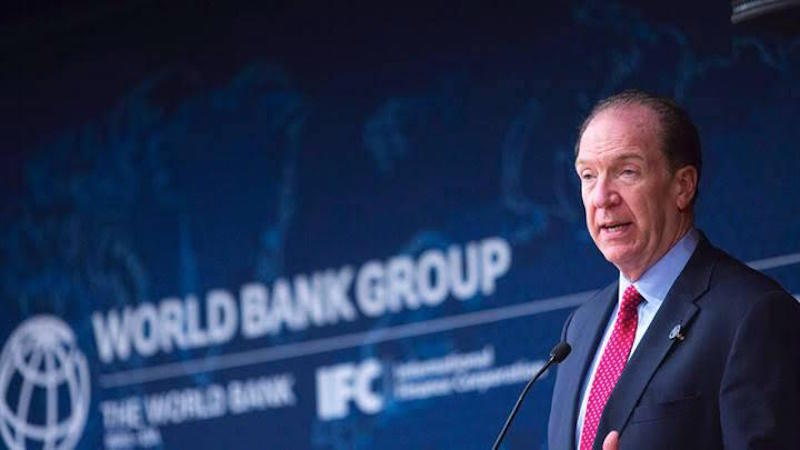On Wednesday, Oct. 13, the World Bank Group (WBG) held the opening press conference to its 2021 Annual Meetings Week, where WBG President David Malpass outlined the group's current priorities: reducing debt in low-income countries, COVID-19 vaccine distribution and climate change.
World Bank representatives have recently visited several nations throughout the Middle East and Africa and engaged in conversation with leaders from across the globe – including Sudan, Japan, Afghanistan, Israel and multiple others – in an effort to reconnect the global economy. The poverty and debt situation in developing nations, Malpass said in the Wednesday conference, has become dire.
Many of these problems have been exacerbated by the pandemic, and the spectrum of recovery is wide for countries across the world.
"The world is suffering from a dramatically uneven recovery," Malpass said. "Inequality is worsening across country groups."
According to Malpass, per-capita income in advanced economies is growing by nearly 5% in 2021; meanwhile, the same growth rate in developing and low-income nations lags severely behind at just 0.5%.
With high inflation, too few jobs and shortages in the food, water and electricity supply chains, the outlook remains grim for developing countries, Malpass said. He estimated that the pandemic has tipped nearly 100 million into extreme poverty worldwide.
"We are witnessing a tragic reversal in development," he said, noting that the WBG's support for the world's poorest countries is "at an all-time high." "The progress on poverty has been set back by years, for some, likely decades."
To approach the problem, "it is vital that we address this head-on by redirecting policies in both the advanced economies and developing countries so that growth and investment are more wide-spread," Malpass said.
Securing access to the vaccine and speeding up the vaccine administration systems in those nations is WBG's highest priority. Malpass urged governments of developing countries to enter contracts for delivery of vaccines as soon as possible; the group has funded the delivery of 250,000,000 doses to needy countries.
The debt challenge in developing nations is another urgent matter for WBG, according to Malpass. According to the International Debt Statistics Report from WBG, debt across the lowest-income countries has increased by 12%, reaching $860 billion.
"We need new systems to push that along because so many countries are in external debt distress or at high risk of it," Malpass said. "We need a comprehensive approach, including debt reductions, swifter restructurings and more transparency in order to make progress with this problem."
Malpass noted progress in the WBG International Development Association (IDA) 20 Replenishment program, the group's fund for supporting the poorest nations in inclusive development and COVID recovery. Through IDA20, the WBG has committed to support 74 countries between July of 2022 and June of 2025.
The president called on active participation from both the public and private sectors and the whole international community to bring together the resources needed to support developing nations in leading issues such as climate change and vaccine distribution.
One of the final priorities mentioned in the WBG conference, climate action, will be discussed at length at another WBG conference this week.
As the week progresses, the WBG will discuss a broad range of development issues, including debt climate, trade, economic outlook and growth, vaccines and others. The schedule is available here.

